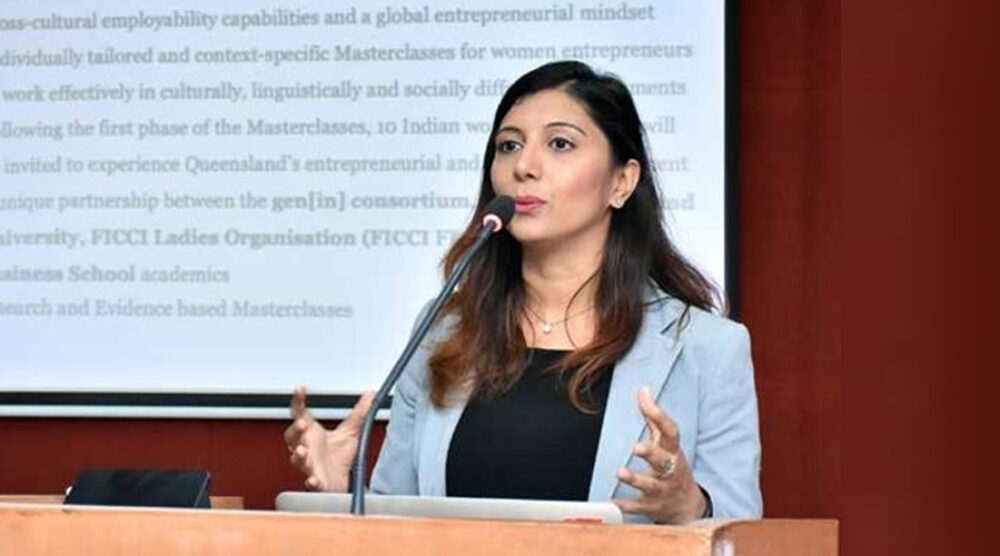Dr Dhara Shah from the Department of Business Strategy and Innovation has been selected as one of ten finalists for the prestigious IABCA (India Australia Business and Community Awards) under the category of Australia India Science, Research and Development Award. Central to the purpose of this award is the recognition and support of outstanding contributions to the advancement of science, technology and research made by an organisation or an individual. Entry is open–but not limited to–academics, researchers, doctors, scientists, institutions, and universities.
Dhara is working on two research projects, which were recognised by the panel as contributing to the advancement of science, technology and research. Her first research project is a social innovation project which aims to build self-sufficient and socially thriving women over 50 years who are at risk of homelessness, contributing to the wider community with improved life-outcomes through bringing women together in support groups or partnership, providing training, support, coaching, mentoring and small grants to start their own business. Her second research was related to building intercultural business capabilities of Indian women entrepreneurs highlighting the obstacles these women face.
Some of the key lessons from both her research projects have been
- Support is critical for women entrepreneurs to succeed personally and in their businesses.
- For women entrepreneurs balancing personal, family life and career pursuits is the biggest challenge as a business owner
- Women in India, due to the patriarchal nature, were often not considered to be serious business owners.
- Most women choose entrepreneurship as an option due to lack of opportunities, underemployment or to gain independence.
- When bringing older women together to form social groups, women were more likely to work effectively and beat social isolation.
- Gender and age discrimination is pertinent causing many women over 50 years to be underemployed or unemployed.
- Opportunities like the Masterclasses and Bootcamp were essential for women to take the step towards internationalising their businesses.
- Handholding, mentoring, support and upskilling are critical factors for vulnerable women to get them on an entrepreneurial journey as a first step to get out of their situation.
- Vulnerable women over 50 years had positive outcomes and increase in confidence within a nurturing and supportive environment.
Among other problems, women entrepreneurs often experience difficulties sourcing funding and mentors. Access to capital is still largely all-male; moreover, mentor networks are also mainly male dominated, which has made it harder for women entrepreneurs to obtain the guidance and mentorship they require to grow internationally and take that next step as entrepreneurs. So, while women entrepreneurs may have defied the odds to start a successful start-up, they may still require additional support with understanding how to succeed in a domestic and international environment.
Both the projects have shown positive impact on women with increased confidence and networks and upgraded skills.





